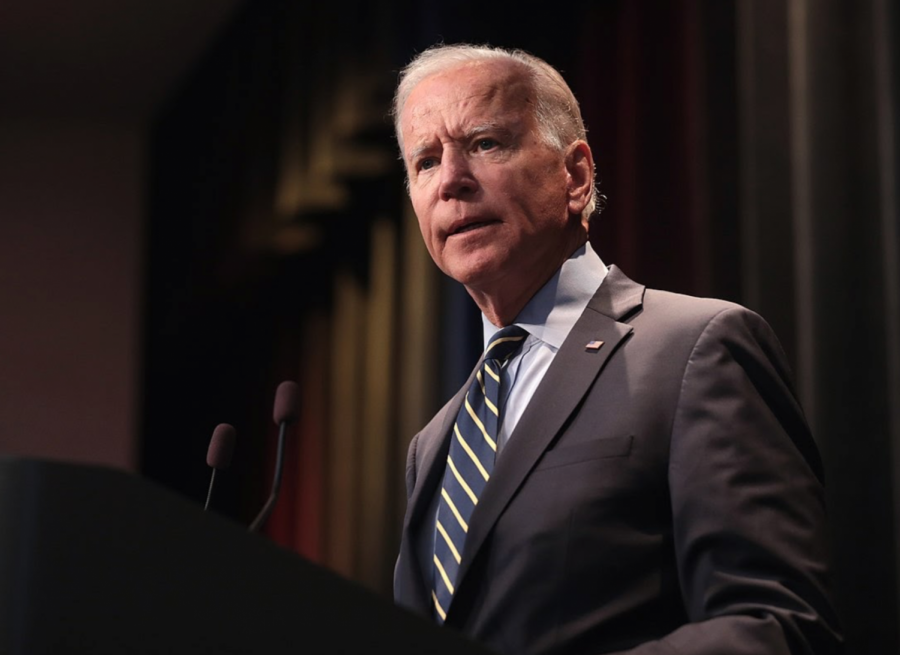Biden administration reveals $2T infrastructure plan
April 8, 2021
President Joe Biden revealed the details of his $2 trillion infrastructure package on March 31 just as his administration turned its attention to boosting the post-COVID 19 pandemic economy.
Currently, the United States ranks 13th in the world in infrastructure, according to a World Economic Forum report from 2019.
While Biden’s $2 trillion proposal would involve spending that lasts an estimated 8 years, the corporate tax increase would raise the $2 trillion over the time span of 15 years.
The package would increase the corporate tax rate by 28%t, CNBC reports. The 28%corporate tax increase would be half as high as what it was before the Republicans implemented their tax cuts in 2017. In 2017, the rate was lowered to 21%.
CNBC reports that Biden spoke at a union hall in Pittsburgh, where he called the package a vision to create “strongest, most resilient, innovative economy in the world.”
$400 billion in the package would go toward care for the elderly and disabled Americans, in an attempt to make home and community-based care more accessible.
Other areas of focus in Biden’s infrastructure plan include an initiative to improve housing conditions in the nation. $213 billion will go towards affordable housing, NPR reported.
In the area of transportation, the proposal also called for investments in electric vehicles, allocating $174 billion for the vehicles. $115 billion will go toward bridges and roads, while an additional $20 billion would focus on improving road safety. $85 billion would go toward existing public transit.
Biden’s plan also aims to create jobs and restore the workforce in a post-pandemic economy. $100 billion will be set aside for workforce development programs, programs that are targeted towardunderserved groups, including $5 billion for violence prevention programs. $30 billion will go toward pandemic preparedness and $52 billion for domestic manufacturers.
The infrastructure plan prioritizes a need for restoration in the nation’s educational institutions as well. $100 billion will go toward restoring school buildings and $12 billion toward community colleges across the nations.
Biden’sproposal is expected to face challenges, despite Democrats narrowly controlling both chambers of the U.S. Congress.
Senate Minority Leader Mitch McConnell said he is likely to not support the bill if the plan involves massive tax increases.
“It’s like a Trojan horse,” McConnell said. “It’s called infrastructure, but inside the Trojan horse it’s going to be more borrowed money, and massive tax increases on all the productive parts of our economy.”
Sen. John Barrasso of Wyoming said that Biden should focus on working with Republicans to “fix America’s crumbling roads and bridges,” rather than “raise taxes while also spending trillions on a bill that includes the punishing regulations of the Green New Deal.”
Sen. Chuck Schumer of New York sees the bill as a means to create jobs, while promoting clean energy and transportation.
In a statement, Schumer said he is looking forward to working with Biden on passing “a big bold plan that will drive America forward for decades to come.”
Biden responded to those who passed judgement on his proposed tax hikes, saying he would not increase taxes on anyone who makes less than $400,000 per year. He also said that he did not aim to punish the wealthy.
“This is not to target those who’ve made it. Not to seek retribution,” Biden said. “This is about opening opportunities for everybody else.”
Biden has stated that he wishes he could have Republican support for the infrastructure bill. If Democrats cannot obtain the support from 10 GOP senators, then the bill will be passed through budget reconciliation, a political move that would not require any Republican support.
Biden’s infrastructure proposal is a clear indication that fighting climate change, while also investing money in the people that voted him in office, is top priority for his administration.








